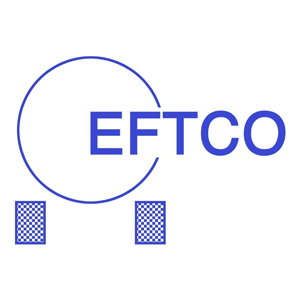Where tank cleaning and food safety intersect
This standard applies to cleaning stations where containers hold raw material and food and feed. The globally-recognised certification proves that the products have been thoroughly cleaned during each part of the transportation process.
The ENFIT HQF certificate is awarded by independent certification body DNV -the certification body that is exclusively authorised to audit companies for its usage.
Ensuring food safety in every link to protect consumers
Food safety is not a new concept and everyone needs food to function. Therefore, the food everyone consumes must be safe.
For most consumers, it may seem as though food safety begins and ends with washing vegetables or cooking meats well. However, there is a whole journey before it reaches the marketplace and subsequently onto people’s plates.
The World Health Organisation (WHO) emphasises that food safety is a shared responsibility between governments, producers and consumers.
The organisation says everyone has a role to play from farm to fork to ensure food is safe and healthy.
Transportation plays a key part in the collective responsibility that is food safety - food supply chains cross multiple borders.
As such, the importance of food safety to protect consumers cannot be understated, particularly in transportation and distribution.
Every day, over 300,000 tonnes of raw materials, semi-finished goods and finished products travel through Europe alone. Food contamination can occur at any point during production, distribution and preparation. In fact, major food-related outbreaks have occurred during transportation. The ENFIT HQF standard places importance on set hygiene measures for cleaning stations.
Cleaning standard built with food safety at its core
The COVID-19 pandemic brought about unforeseen challenges, meaning food systems have had to adapt. Nevertheless, supply chain actors have been able to revamp their activities to ensure continued food supply, at least in the developed world.
Today, the reality is that food supply is increasingly complex. The pandemic has further exacerbated the complexities within the chain, making it even more difficult to address challenges.
“Food fraud, cross-contamination, regulations on food declaration and origin, and food defense are definitely top of the list,” said Joy Laing, global supply chain director at DNV.
“These are challenges that not only represent in the worst case, a severe threat to consumers’ health, but at the same time pose significant brand reputation, financial, legal and supply chain risks.
“Addressing them requires a robust approach to processes, end-to-end transparency and technology use.”
The ENFIT HQF standard is designed to address some of these concerns by reducing the risk of cross-contamination in the transportation of food, for example, salmonella, mycotoxins, dioxins and other harmful substances while also ensuring compliance with food hygiene and safety standards, regulation and legislation. It requires that the cleaning and disinfecting of food containers and attachments are carried out as part of a defined and verified process.
The standard covers a three-stage inspection programme, including the existing management system and personnel training. It also includes the successful implementation of food safety and transportation hygiene guidelines while keeping legal requirements in mind.
Another challenge arises as many companies are suffering from heavy goods vehicle (HGV) driver shortages, which could lead to shortcuts in standards.
This could result in added risks, such as using unapproved warehouses for logistics reasons or subcontractors whose hygiene standards of cleaning are unclear or not verifiable. These risks apply to food security measures required in the supply chain, further driving home the need for effective cleaning and disinfection of food containers used by transporters.
The ENFIT HQF standard serves to mitigate these risks to improve food safety supply chain management, minimise supply chain disruptions that may arise, and give increased confidence to customers regarding transport operators’ hygiene requirements.
Maintaining integrity via third-party certification
With all hands on deck, logisticians and transporters hold the responsibility of ensuring that the cleaning of food transport containers is carried out in suitable and regularly certified cleaning facilities.
To better ensure the accountability of personnel involved, ENFIT has developed its HQF standard and has appointed an exclusive certification company, DNV to certify that cleaning stations are up to par.
Cleaning stations should familiarise themselves with the requirements and determine if their site is compliant.
When the site is deemed ready for the certification audit, the audit will be performed by the DNV.
Customers chime in
Belgian company, Asro Clean, specialises in tank cleaning for food transportation. It is the first to have its cleaning stations certified by DNV to the standard designed to ensure food safety and compliance when transporting goods in food containers.
Asro Clean has received the highest level of certification, that is, the Excellent Seal of Approval – for its cleaning stations for food transport containers.
Food safety remains crucial
Food safety and food defense have become and will remain crucial topics of this decade. The digital transformation of the food sector is key to ensuring better communication and trust between all players along ever more complex, international value chains.
Consumers expect to know many things about the products they eat in today’s world and the ability to give consumers a history of transparency on products would be a game changer for brand owners and retailers alike.
Food safety standards are core within the majority of food supply chains. Global Food Safety Initiative-benchmarked standards have been driving food safety improvements for years and standards like the ENFIT HQF contribute to the resilience that the sector is often commended for.
It is important to be open to new approaches and embrace digital tools and solutions while building upon existing, robust food safety systems and cultures.
For more information: Visit: dnv.com





